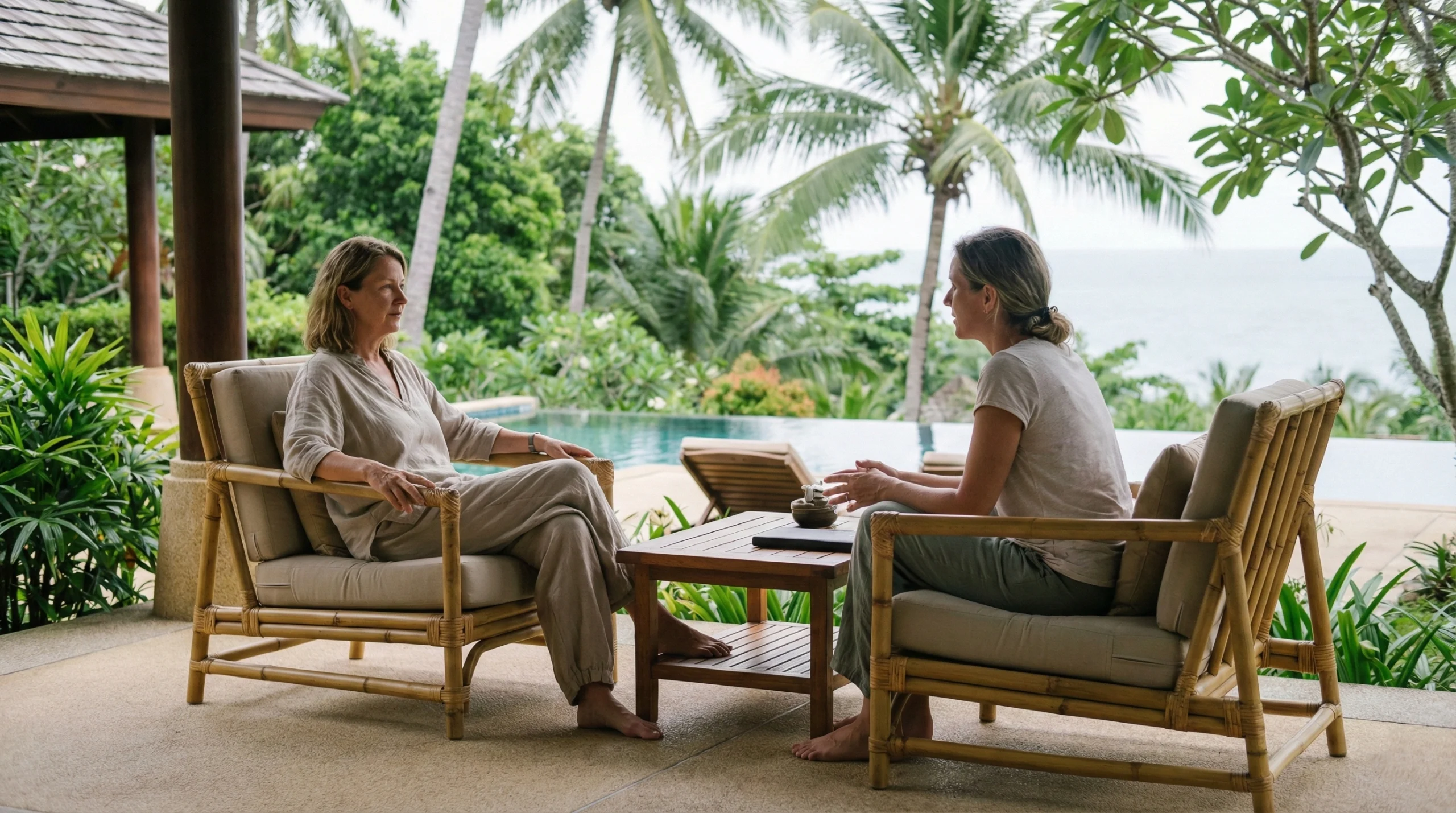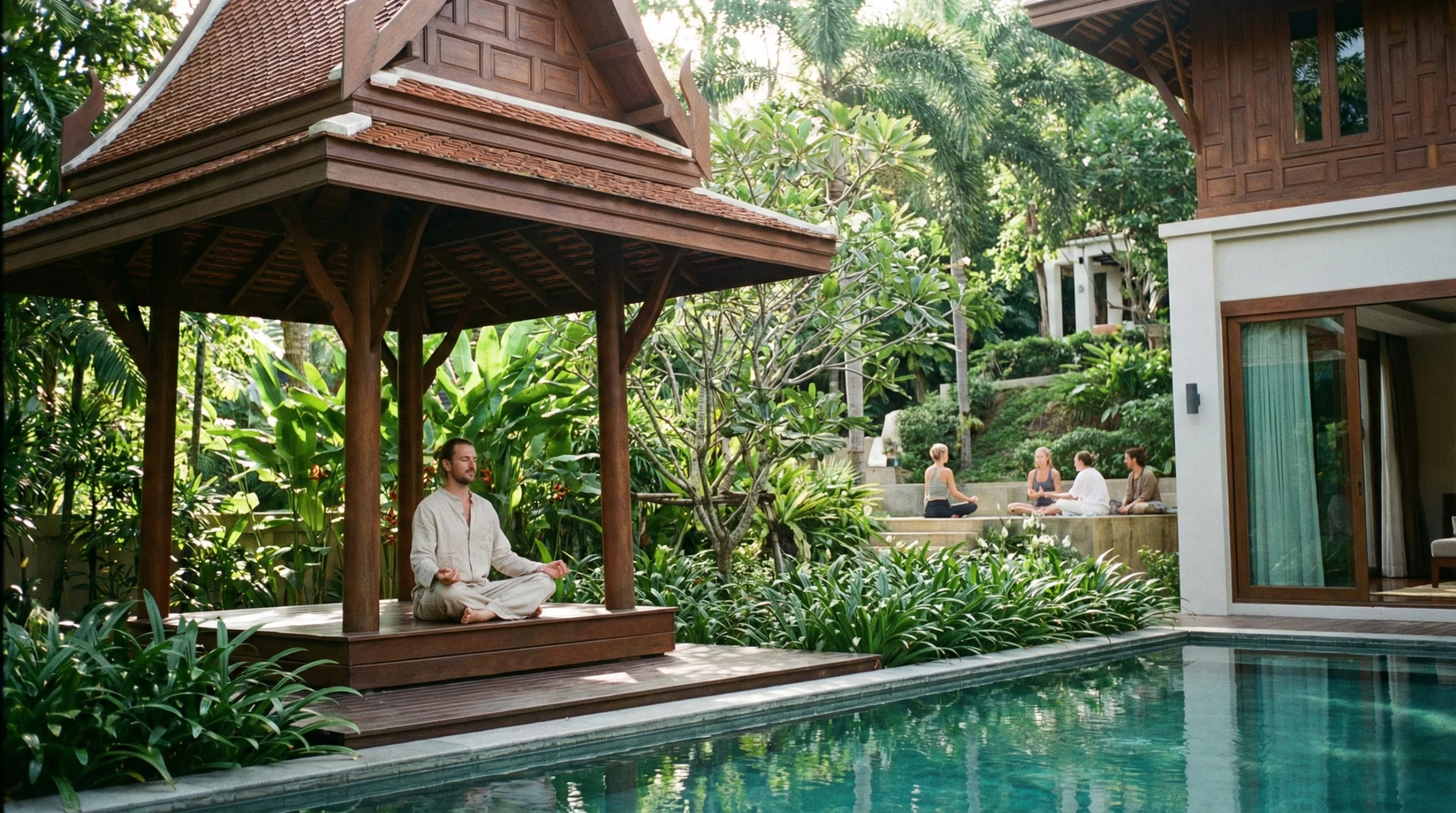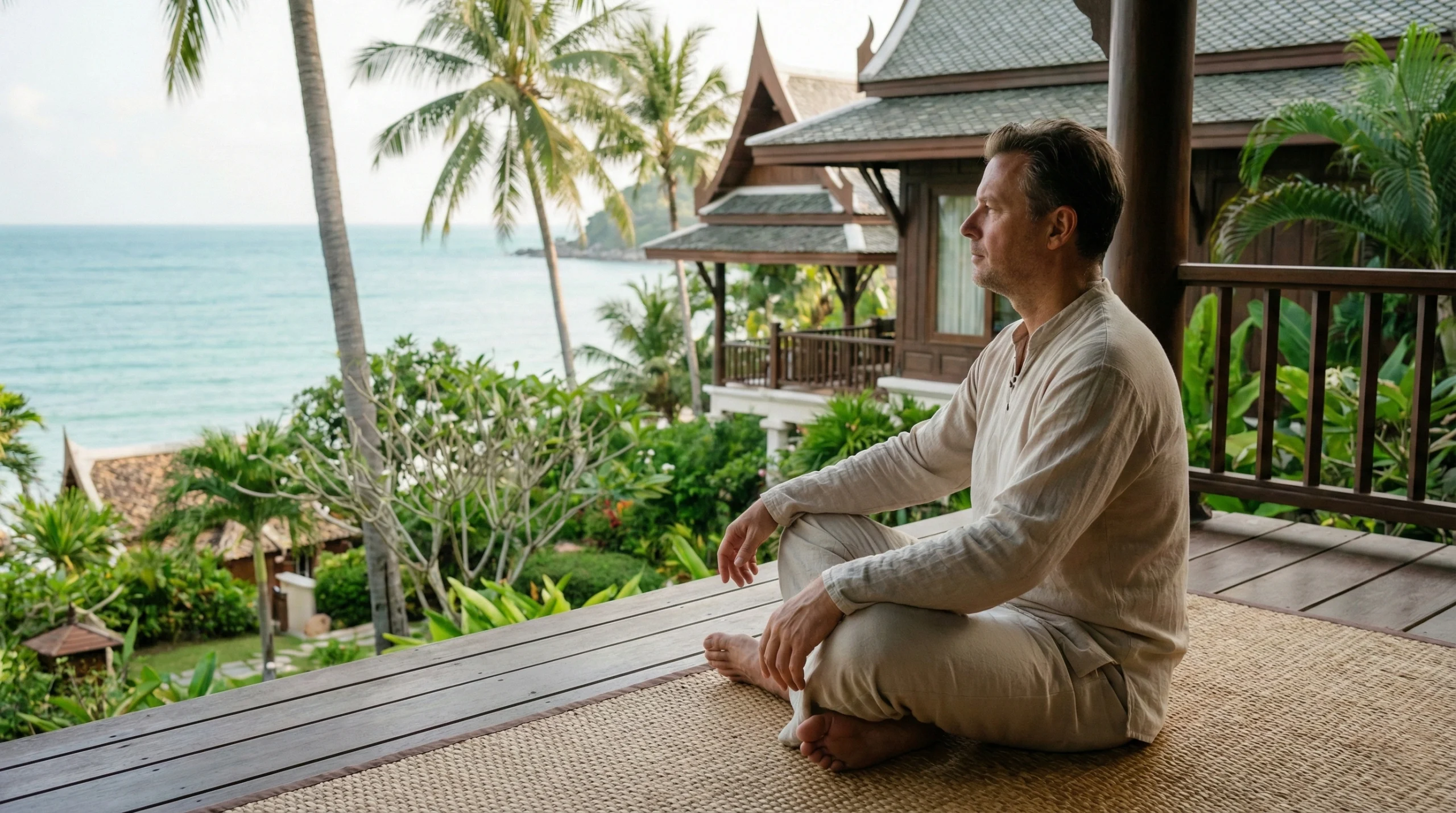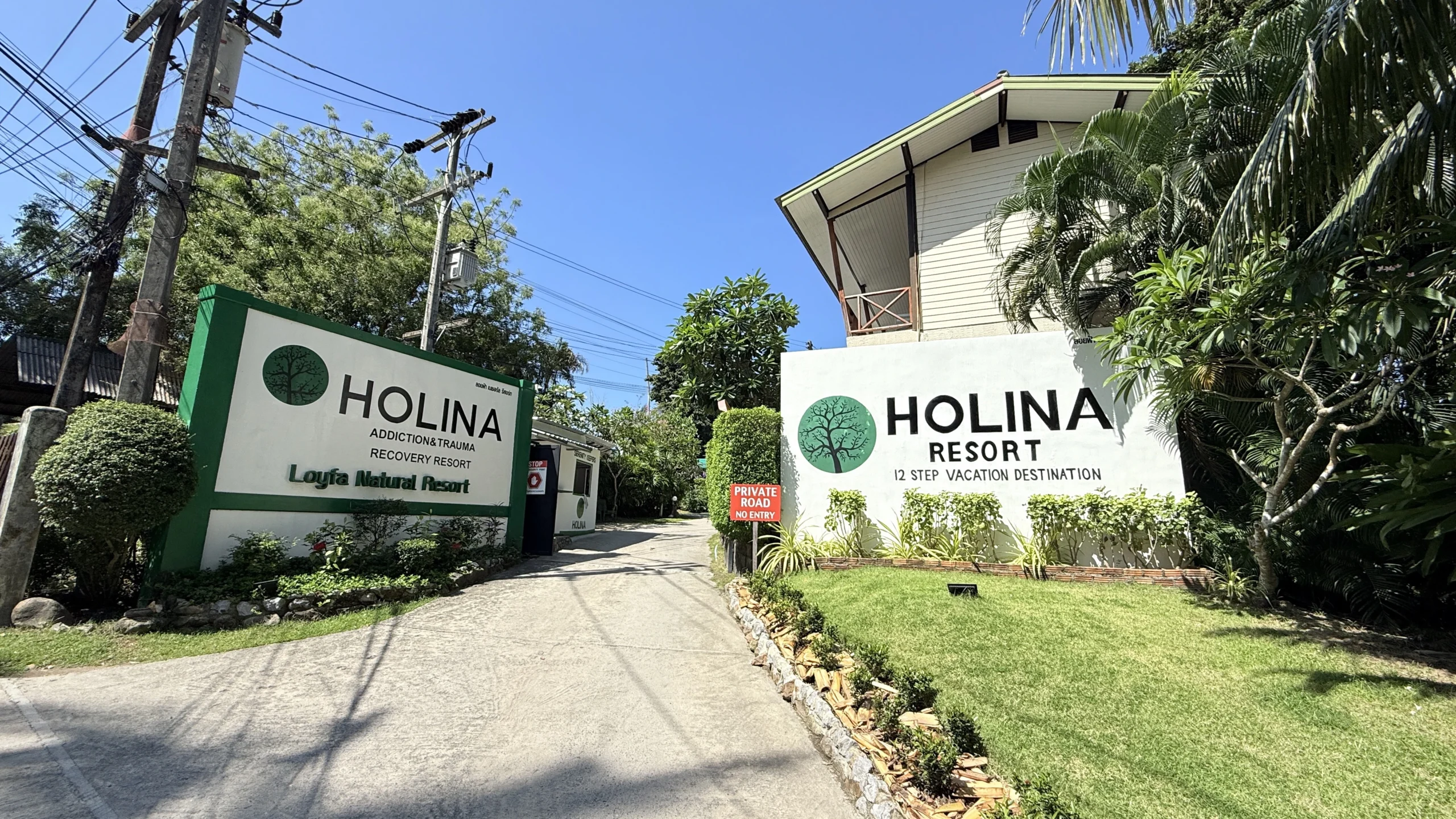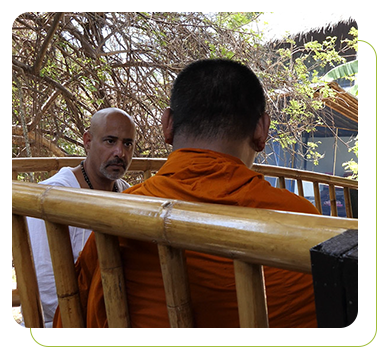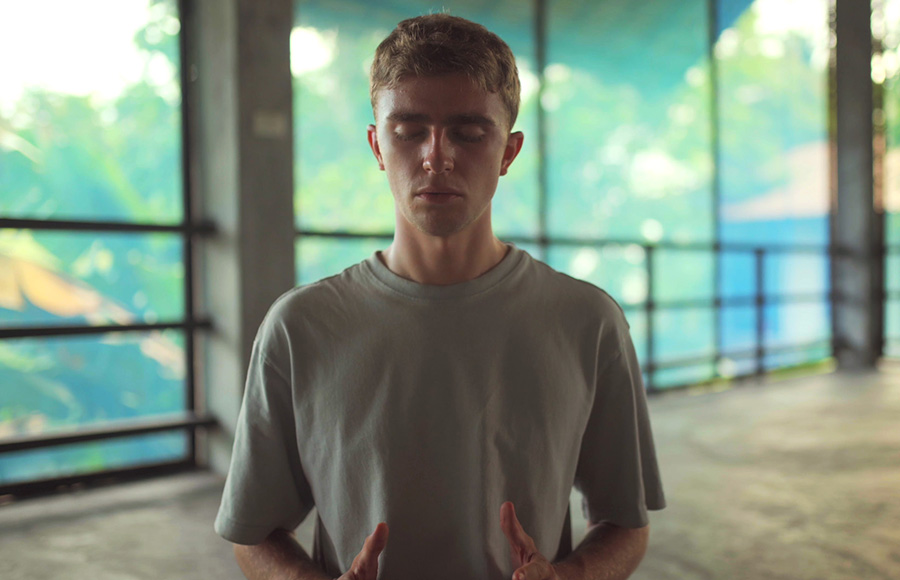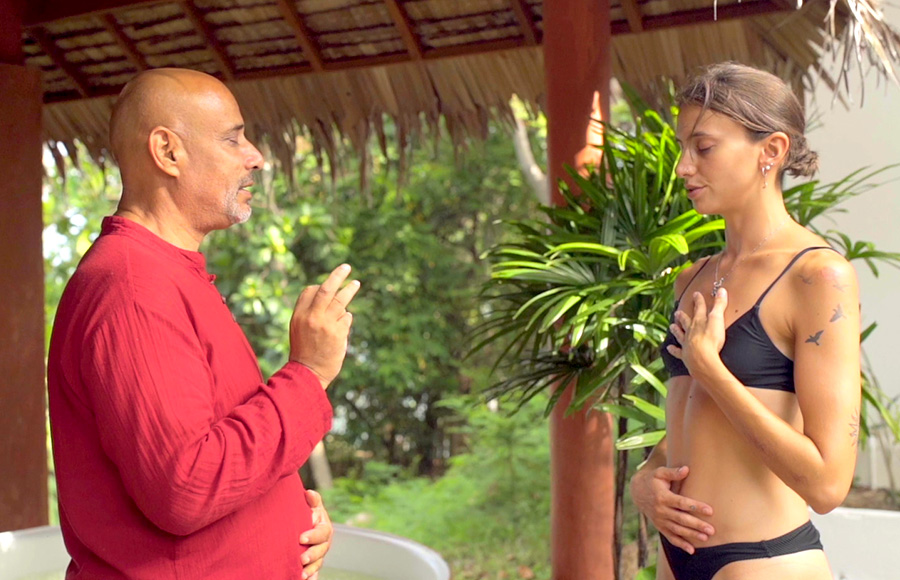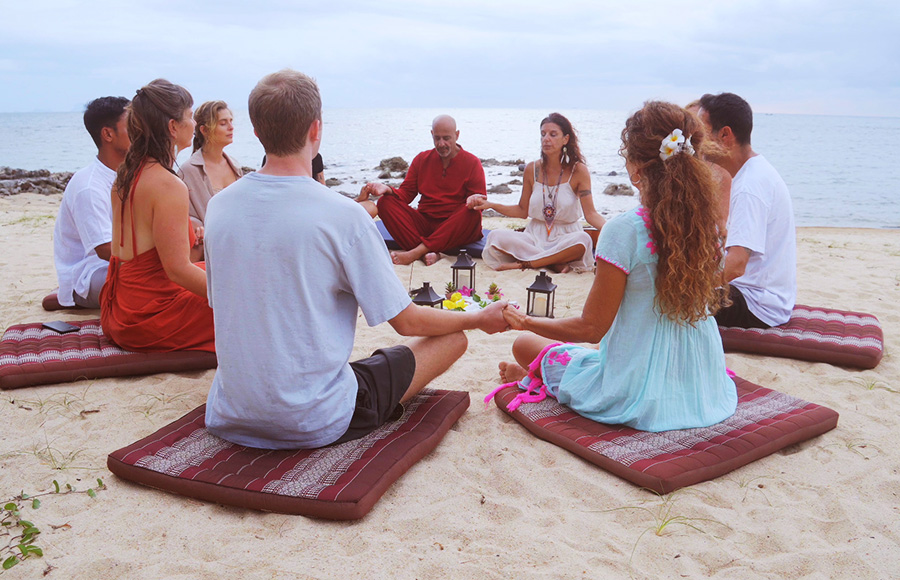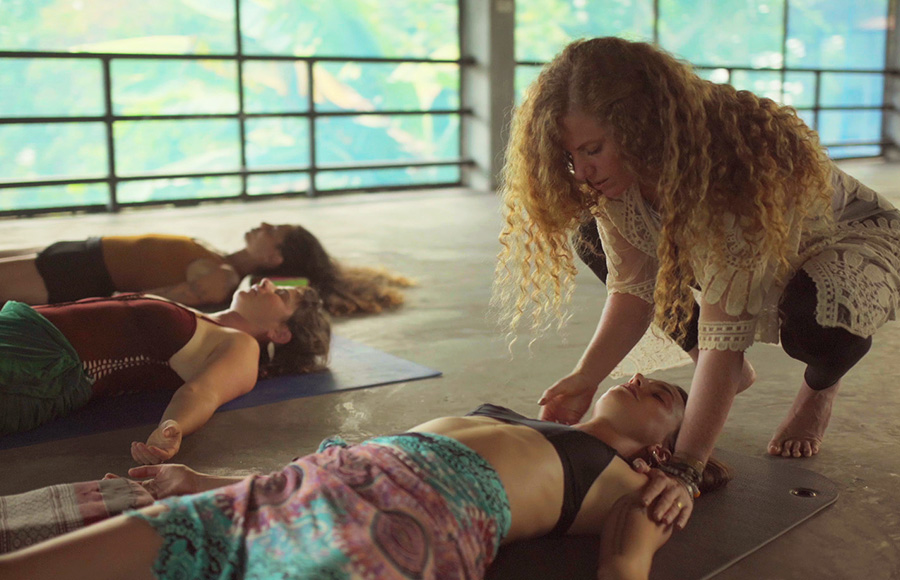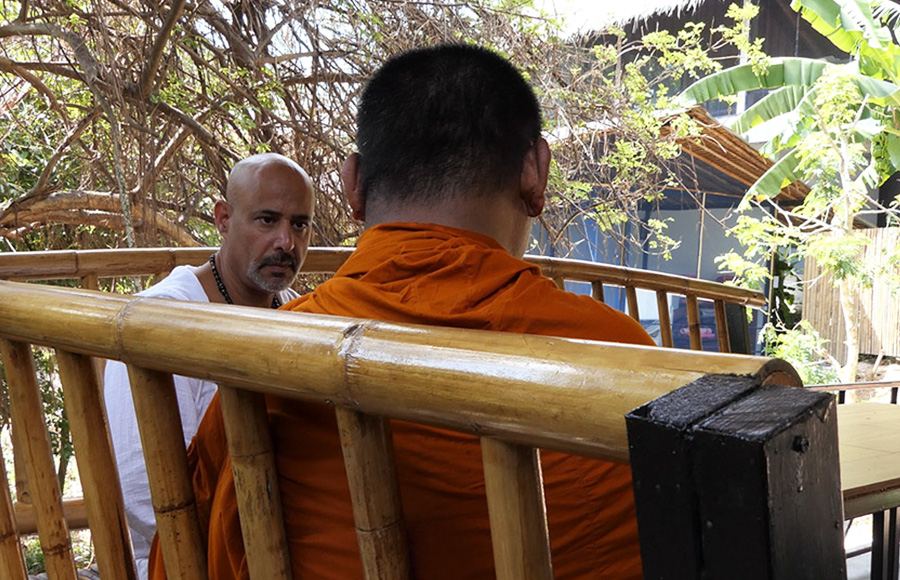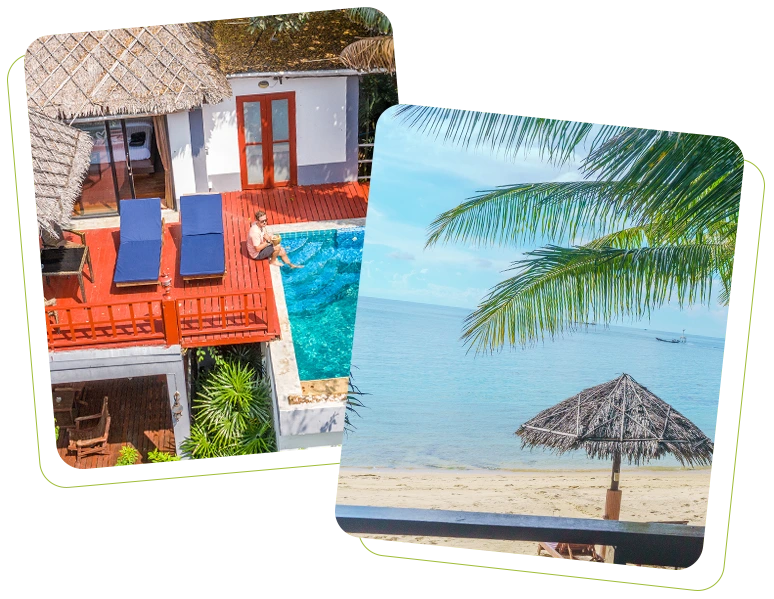Healing Through Connection: The Power of Community in Recovery
05 min read
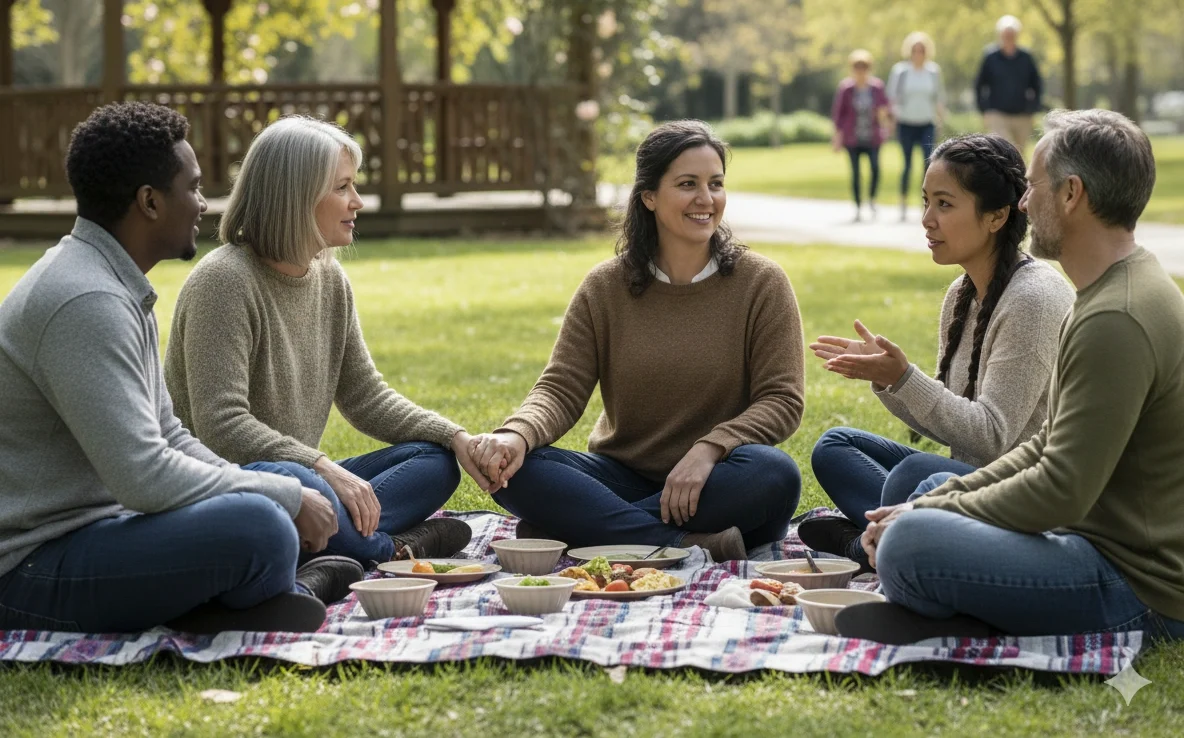
We Heal Together
Addiction isolates.
It thrives in secrecy, silence, and shame — convincing us that we are alone in our pain.
Recovery, on the other hand, begins the moment we realize we’re not.
At Holina Rehab Thailand, community is more than a support network — it’s the heart of healing itself.
Because addiction breaks connection, and connection is the only thing that can truly mend it.
Here, every conversation, shared meal, and moment of honesty becomes medicine.
Through others, we learn to see ourselves again — and remember that belonging was never lost, only forgotten.
The Science of Connection and Recovery
Human beings are wired for connection.
Our brains, hearts, and nervous systems are designed to co-regulate — to find safety and strength in the presence of others.
When addiction takes hold, that system breaks down.
Loneliness, guilt, and mistrust replace connection. The nervous system remains stuck in fight-or-flight, constantly scanning for threat.
Community heals this on a biological level.
When we connect authentically — through empathy, laughter, or shared experience — the brain releases oxytocin and endorphins, natural chemicals that calm stress and increase wellbeing.
In short: community doesn’t just make recovery easier.
It makes it possible.
The Emotional Power of Being Understood
Many people in recovery describe a moment that changes everything — not in therapy or meditation, but when someone simply says, “I get it.”
That moment of recognition breaks isolation and replaces shame with belonging.
At Holina, this is the foundation of our healing community.
Through group therapy, shared meals, and daily rituals, clients realize they are not defined by their past.
They begin to feel seen — not as “addicts” or “patients,” but as human beings doing the brave work of becoming whole again.
“For years, I thought no one could understand me. Then I heard my own story come out of someone else’s mouth. I cried, and I knew I wasn’t alone.”
— Holina graduate, UK
This is the essence of connection — the quiet realization that you belong, even in your brokenness.
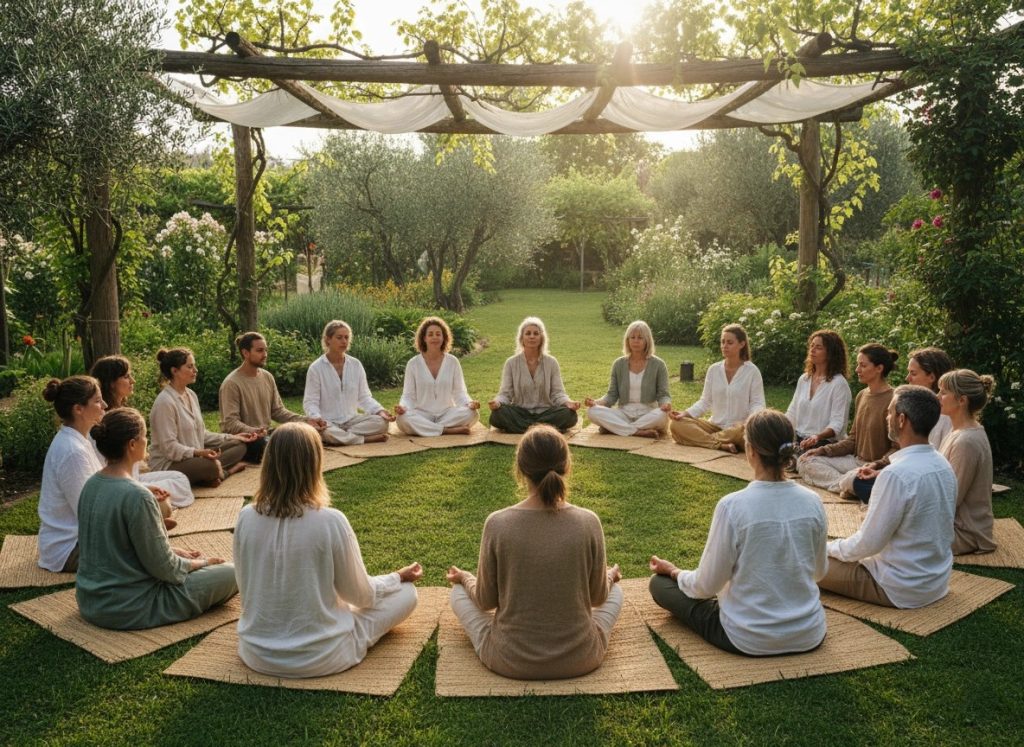
The Holina Community Experience
From the moment clients arrive, they are welcomed not just into a program, but into a family — one rooted in empathy, respect, and shared humanity.
Our community model is woven through every part of the Holina experience:
Morning meditations and group reflections to begin the day with intention.
Group therapy and process circles that teach vulnerability, honesty, and active listening.
Shared meals and creative workshops where joy becomes part of healing.
Evening gratitude circles to close the day in reflection and togetherness.
These moments create rhythm, trust, and a sense of belonging that many haven’t felt in years.
At Holina, community isn’t built through rules — it’s built through presence.
Everyone — from therapists to chefs — is part of the healing circle.
Why Isolation Fuels Addiction
Isolation is both a symptom and a cause of addiction.
It begins as withdrawal from others — through shame, fear, or exhaustion — and slowly becomes a cage.
Without connection, the brain’s reward system becomes starved.
Substances temporarily fill that void, offering the illusion of relief or comfort.
But over time, they deepen the disconnection, trapping people in a cycle of craving and loneliness.
Community breaks that cycle.
It restores connection to others, which restores connection to life.
As one Holina therapist often says:
“Addiction disconnects you from love. Community brings you back to it.”
Healing in a Group Setting
Group therapy is a cornerstone of Holina’s program — and one of the most transformative.
In these sessions, clients sit in a safe, guided space to share experiences, emotions, and insights.
The process teaches empathy and perspective.
Listening to others allows clients to see their own patterns more clearly.
Sharing honestly helps release shame and builds courage.
Group sessions often end with laughter, tears, and quiet understanding — a collective exhale that says, “We’re in this together.”
These shared experiences reprogram the nervous system for safety — showing that vulnerability doesn’t lead to rejection, but connection.
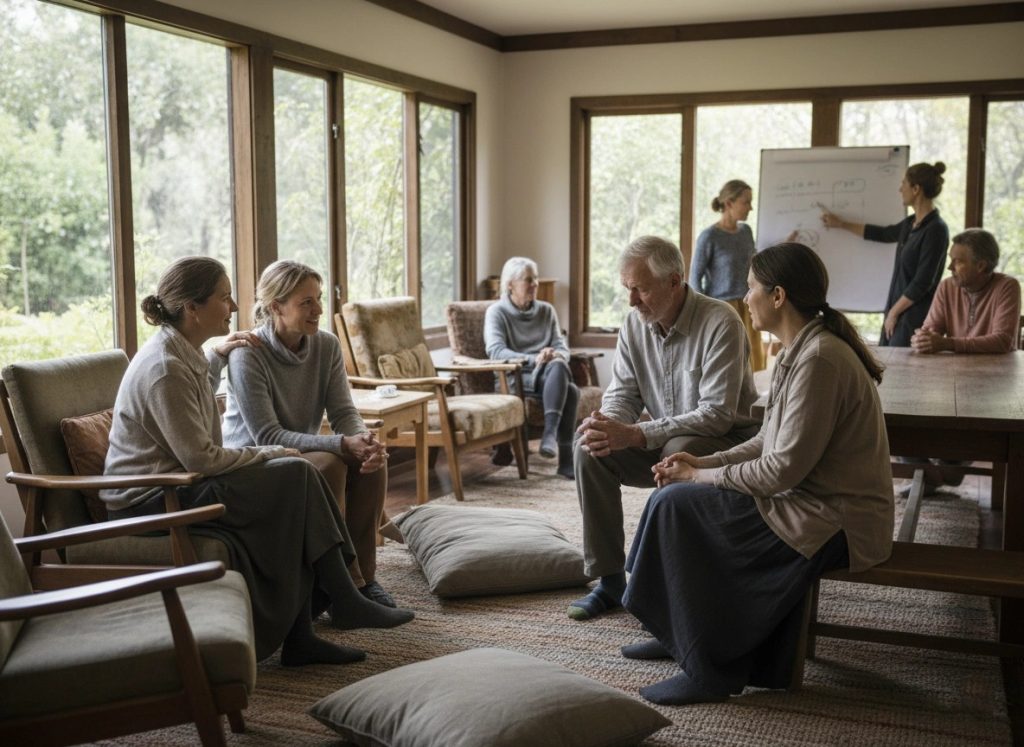
The Role of Compassionate Peer Support
Peers are powerful healers.
At Holina, clients support one another in ways no therapist or clinician can — through lived empathy.
They encourage, challenge, and hold each other accountable with honesty and care.
Our peer support model includes:
Buddy systems for new arrivals
Community check-ins to maintain group harmony
Peer-led mindfulness or reflection circles
Alumni mentorship from those further along the journey
Through these bonds, clients rediscover trust — not just in others, but in themselves.
“When I supported someone else through their cravings, I realized I was strong too.”
— Holina alumni, Australia
Helping others becomes part of one’s own recovery.
Healing Relationships Through Connection
Community at Holina doesn’t replace family — it helps heal the ability to connect with family again.
Many clients come with relational wounds: broken trust, codependency, or fear of intimacy.
Through the safety of peer and therapist relationships, they practice healthy connection — boundaries, honesty, and compassion.
This healing ripples outward.
When they return home, clients are better able to communicate, set boundaries, and love without losing themselves.
In this way, community at Holina becomes the training ground for authentic relationships beyond rehab.
Connection as a Spiritual Practice
Community isn’t just therapeutic — it’s sacred.
Each circle, conversation, and shared silence becomes a reminder of the spiritual truth that no one heals alone.
In recovery, connection becomes a form of prayer.
Listening becomes meditation.
Sharing becomes offering.
This sense of unity — of belonging to something greater — often becomes the most powerful force sustaining long-term recovery.
It’s the moment clients shift from “I am healing” to “We are healing.”
Community and Accountability
Healthy communities aren’t just loving — they’re honest.
At Holina, accountability is an act of care, not control.
Clients learn to give and receive feedback with respect — to hold one another to their highest intentions.
This helps dismantle patterns of denial and avoidance that often accompany addiction.
Accountability in community says:
“I believe in you enough to tell you the truth.”
And that truth, held with compassion, becomes a mirror for growth.
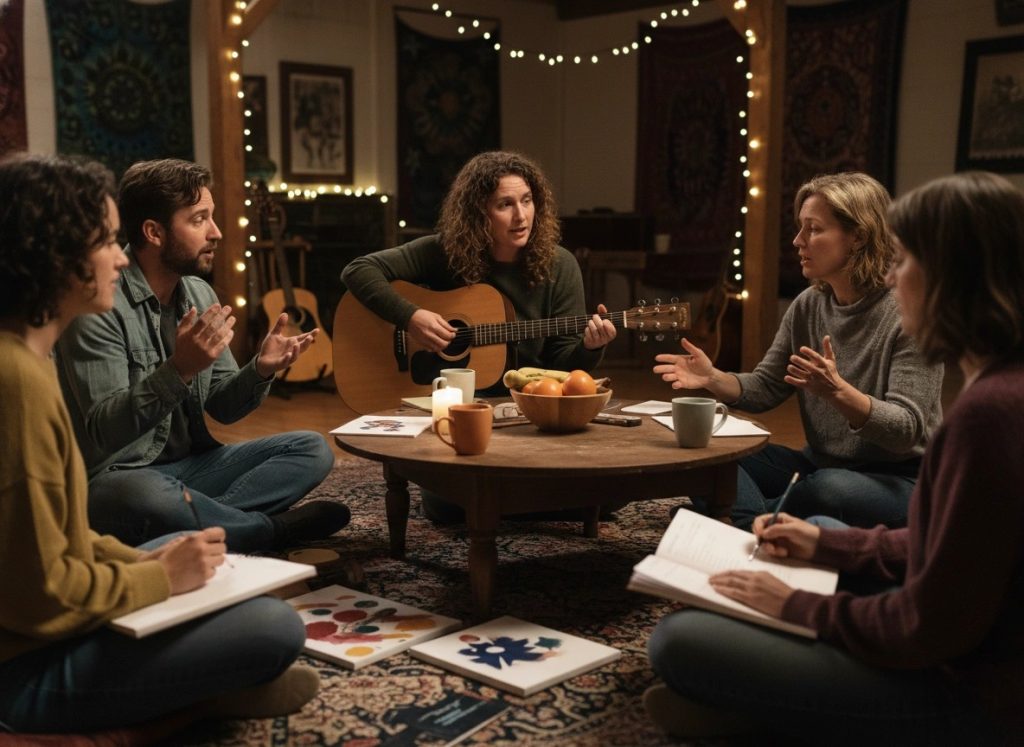
The Power of Shared Rituals
Rituals are central to community healing.
At Holina, these moments mark transitions, intentions, and transformations — weaving the individual into the collective.
Examples include:
Welcome and departure ceremonies, honoring each person’s courage and growth.
Evening gratitude circles, where clients share reflections from their day.
Full moon meditations and ocean blessings, connecting with nature’s rhythm.
Creative sharing nights, celebrating self-expression and authenticity.
These rituals remind clients that recovery is both personal and universal — that each story contributes to the larger tapestry of healing.
The Role of Staff and Facilitators
What makes the Holina community unique is that it’s not hierarchical — it’s relational.
Therapists, counselors, and facilitators are part of the circle, not above it.
They share reflections, walk alongside clients, and embody the same principles of honesty and compassion.
This authenticity creates safety.
It breaks down the “us versus them” dynamic often found in traditional treatment settings — replacing it with genuine partnership.
When clients see staff living the same mindfulness and compassion they teach, healing feels real — not theoretical.
Community Beyond the Island
One of Holina’s most cherished gifts is the lifelong connection clients maintain after leaving.
Our global alumni network allows graduates to stay in touch through:
Virtual support groups and reunions
Online mindfulness and reflection sessions
In-person alumni gatherings in Thailand and abroad
Mentorship opportunities for new clients
This ensures that no one ever leaves Holina’s care alone — the circle continues, wherever they are.
“Leaving Holina felt like leaving home. But when I joined my first alumni call, I realized — the home came with me.”
— Holina graduate, Singapore
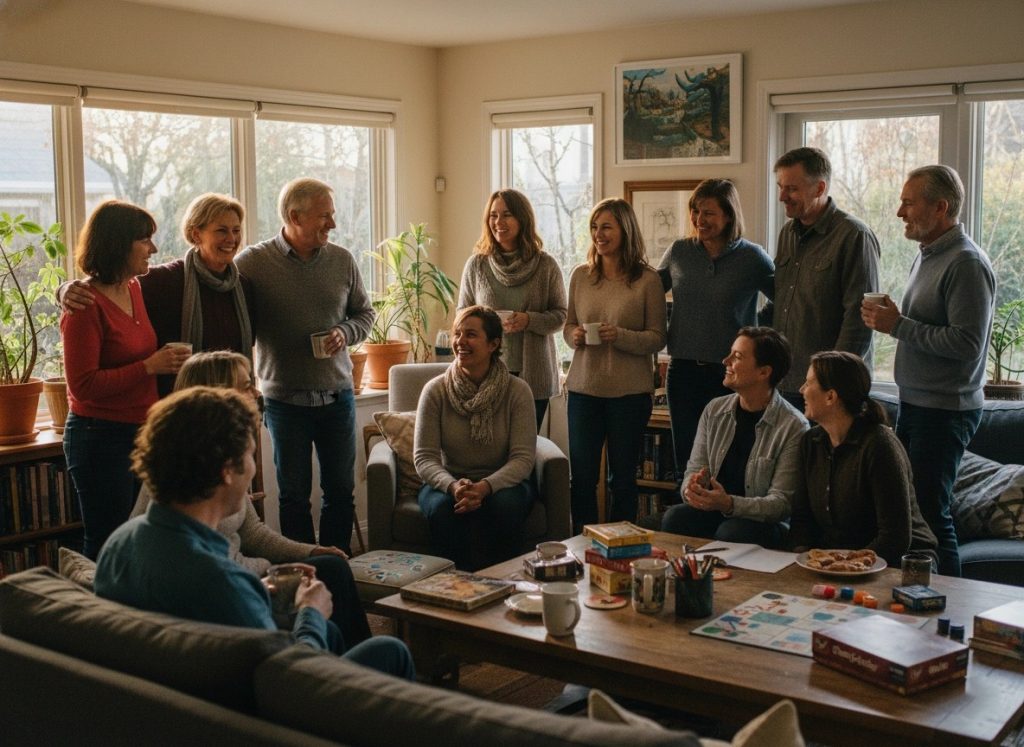
Community as Relapse Prevention
Connection is one of the strongest predictors of long-term recovery.
People who stay connected to sober networks and supportive communities are far less likely to relapse.
At Holina, community acts as both prevention and protection — a living reminder of what matters most.
It replaces isolation with intimacy, and self-doubt with belonging.
When clients feel connected, they don’t need substances to fill the void — because the void no longer exists.
When Community Feels Hard
For some, connection can feel intimidating at first — especially after years of self-protection or distrust.
Holina therapists honor that.
There’s no pressure to open up quickly; connection is allowed to unfold naturally.
With time, even those who once avoided others begin to smile, share, and connect.
Safety grows not from words, but from the gentle experience of being accepted as you are.
That’s the quiet miracle of community — it teaches the nervous system to trust again.
Stories of Healing Through Connection
“I arrived completely shut down. By the end of my program, I was laughing again — something I thought I’d lost forever.”
— Holina graduate, UK
“Community was the medicine I didn’t know I needed. It taught me how to belong — to myself and to others.”
— Holina alumni, Australia
“The people I met at Holina are my family now. They saw me when I couldn’t see myself.”
— Holina client, Germany
Every story shares the same thread — that connection heals what isolation once broke.
FAQs About Community at Holina Rehab
Q1: What if I’m introverted or uncomfortable in groups?
That’s perfectly okay. You’ll move at your own pace. Many introverted clients discover that the community feels safe and supportive, not overwhelming.
Q2: Is participation in group therapy required?
Group sessions are encouraged but always handled gently. You’re invited to share only when ready.
Q3: How does community support relapse prevention?
Connection reduces loneliness and provides accountability, two major factors in long-term recovery.
Q4: Can family members be part of the Holina community?
Yes. Family therapy and workshops are available to help loved ones heal alongside you.
Q5: Will I still have access to community after leaving Holina?
Absolutely. Our alumni program provides ongoing virtual and in-person support worldwide.
Conclusion: Connection Is the Cure
The opposite of addiction isn’t sobriety — it’s connection.
Because what addiction once tried to numb, community helps you feel and heal.
At Holina Rehab Thailand, we don’t just treat addiction — we restore belonging.
Through shared healing, laughter, vulnerability, and care, clients rediscover what it means to be human — and to be loved without condition.
Healing through connection is how we remember:
You were never meant to do this alone.
You were always meant to heal together.
Begin your healing journey with Holina today.
Get back to yourself — and back to each other.
About Me
Ian Young
Ian Young is the Global Manager at Holina Care Centres in Koh Phangan, Thailand. Ian oversees the rehabilitation programs that blend the 12 Step model, Psychology, Counselling, Coaching, Somatic and many other therapeutic engagements, alongside various evidence-based therapies with holistic healing practices. Holina Rehab treats addictions, trauma, anxiety, depression, and other emotional challenges, offering comprehensive care in a serene resort environment. Ian, a charismatic speaker and author of “It’s Not About Me” leveraging his own recovery journey from addiction to inspire and guide others toward a fulfilling, addiction-free life.
Recent Blogs
-
29 Jan, 2026
The Ultimate Guide to 12-Step Rehab in Thailand

